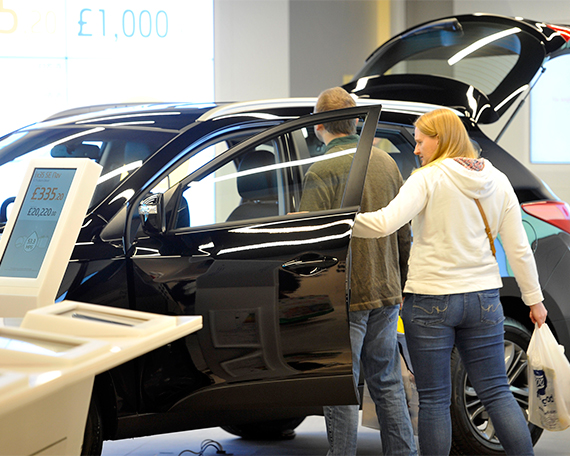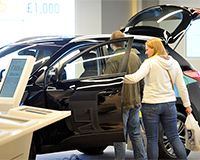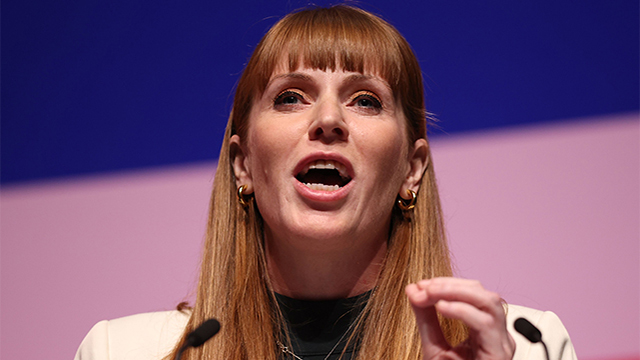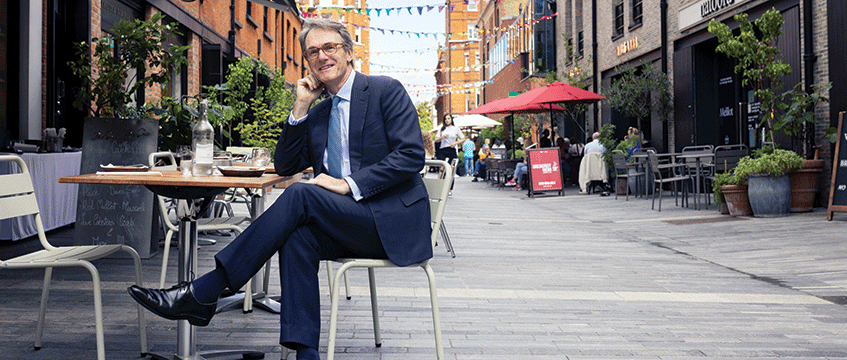 In 2002 Land Rover opened its first Experience Centre at Bluewater. Punters drifting along the concourse of the mall were given the chance to test drive the new Discovery. Off road.
In 2002 Land Rover opened its first Experience Centre at Bluewater. Punters drifting along the concourse of the mall were given the chance to test drive the new Discovery. Off road.
It was a huge success. Careering through the water-filled trenches and over 50m-high cliffs was, somehow, the perfect “experiential” fit with a day at the shops.
For much of the past decade, this represented the high-water mark for the relationship between car brands and shopping malls. More often the “experience” was simply a shiny new model parked, incongruously, in the middle of the shopping centre concourse.
“Experiential is a mature area in shopping malls now,” says Richard Isom, mall retail and brand partnerships manager for Land Securities, which bought a 30% share of Bluewater last year. “In terms of what the shopping centre gets, it is the theatre in the mall, it is something different every week.”
For the likes of Land Rover, BMW or Tesla, it is all about brand recognition and showing off the new member of the family. In essence, it may as well be a 3D advertisement hoarding. If they did have any staff present the most they would be able to do is let you sit in it and twiddle with the knobs. If you actually wanted to buy the thing, you were given a flyer with the address of the nearest dealer.
How times have changed. Technology and innovation means that the car parked in the middle of the mall can be a lot more dynamic.
Of course, some brands are still using the centres as a great place to launch new product. Audi, for example, launched the new TT at Trinity Leeds recently. But recently, malls such as Bluewater have been playing host to an increasing number of car brands. And they are clear on what they want to do while they have the space – sell actual cars.
These are no longer publicity exercises. They are pop-up dealerships.
In 2012 BMW/Mini opened a pop-up for a year in Westfield Stratford, as a shameless Olympics tie-in. Volvo opened its first UK pop-up dealership last year, and Tesla has so far generated sales of £350,000.
BMW/Mini sold 66 cars, worth around £1.5m. Not bad going, considering the target was just 30.
“Our malls offer scale, opportunity and quality for these car brands,” says Isom. “People are in the mood to make a purchase, and more of them are female, more of them are younger.”
He adds: “We have seen so many successful car campaigns over the years, and the scale of the success has surprised me. The sales are increasing, so confidence grows. As the confidence grows, the sales increase.”
And the trend of car brands taking slots in malls to sell cars is continuing. At Bluewater alone BMW/Mini, Suzuki, Vauxhall and Skoda are all taking space in Q1, followed by Jaguar, Lexus and Suzuki in Q2.
“These in-mall outlets are providing a whole new exciting platform for selling cars,” says Colliers International’s Emel Hussein, who is exploring various opportunities for car brands to take space in centres. “With their blend of sales advisers and digital portals to browse car options, they are a great place to get the depth of understanding you require to make a purchase decision. And for shopping centres, they provide another attraction for shoppers and broaden the retail appeal of a centre.”
For Isom, the potential for car retailers to work with them is enormous.
“We now have a number of prime sites and we can offer a good package for them. It gives [car retailers] access to a much better demographic than a dealership.”
LandSec even offers a five-mall package, a pop-up tour of some of the UK’s top shopping centres, which was recently taken up by Suzuki.
“We have more than 50 car activities in our portfolio each year,” says Isom.
But even this is now old hat. Last November Hyundai and its partner, new retail pioneer Rockar, took the next logical step. Instead of a pop-up, Rockar took a ten-year lease on a 2,000 sq ft store at Bluewater.
After seven months trading, Rockar and Hyundai are on target to sell more than 1,000 cars from their little shop, which is around double the trade at an average dealership. No wonder other brands have started sniffing at the potential of doing something more permanent in-store. “Hyundai may well be just the first of many brands to establish a permanent presence in malls across the UK,” says Hussein.
Indeed, it may seem that the car marques have been a little slow to realise that a shopping mall is a pretty good place to sell stuff.
Simon Dixon, Rockar’s founder, would have to agree. In 2004 he sold his old business, Dixon Motors, the UK’s third-biggest car dealership, to RBS. Since then, he says, his only experience of the industry has been as a customer.
“In ten years nothing had moved on, really,” he says. “There was no innovation digitally.”
But the problem, he argues, isn’t that the technology needed to squeeze a car dealership into a traditional mall store is too cutting-edge.
“Most of the technology has been available for a long time,” he says. “The problem is that the industry has done what it does for a long time and it still sells a lot of product.”
That is now shifting. While the dealerships have been getting bigger, fewer people have been visiting them. They are becoming woefully inefficient. “And you don’t want an environment where you feel like the only customer in the store with 20 staff,” says Dixon.
In addition, the average age of a visitor to a car dealership has been steadily creeping up. Now it is 56 years old. And predominantly male. The young and women have begun to feel excluded. If you want to specifically attract women the dealership environment is an active hindrance. “So you need to change the environment,” says Dixon.
A lot of effort, money and imagination has been poured into doing just that. New concepts are being aimed at eliminating the traditional hard-sell, unwelcoming atmosphere of the car showroom, and moving toward a more retail feel.
Still there are the fundamental problems of the location. Most dealerships need to be located in out-of-town, semi-industrial areas, and so don’t tend to be in buzzing or vibrant areas.
“The evolution of digital capability combined with the retail environment has allowed these car brands to come in,” says Isom. “And it exposes the customer to brands they may not have seen before.”
Indeed, 95% of those who bought a car at Rockar’s store had never bought a Hyundai previously.
“We will definitely have two stores by the end of the year, hopefully three,” says Dixon. “But I can’t tell you where.”
That is just the beginning. Hyundai wants to roll the concept out, and Dixon is already talking to other brands about setting up shops with them. “We think we will soon be in a dozen premium centre locations,” says Dixon.
Surprisingly, though, he doesn’t think that traditional dealerships have had their day. Yet. “It has to change. However, I don’t think it will change quickly. This is Channel 2. Channel 1, the dealerships, has been around for ever and will continue.”
But Isom thinks this new way of selling cars could become the norm. “The roadshows and the pop-ups will increase,” says Isom. “Though Rockar is the first to take a store, that will increase.
Isom adds: “We have seen a lot of pop-up activity, and we are confident that the sales support that as a model. It is then up to us to convert them to permanent tenants.”
Software and hardware needed
Rockar’s founder Simon Dixon is keen on digital innovation. After all, he was a founder of jamjar.com. What Rockar has attempted to do is harness new technology to make selling cars online or in store as simple and seamless as buying anything else. Because of this, the Bluewater store is a physical extension of the rockar.com website.
“But we do need physical products,” says Dixon. “You can’t just have the digital.”
That is why in the store you will find a whole heap of interactive technology, but you will also find four actual, physical cars.
“I think one of the reasons Audi City has not been as successful as we have been is because they don’t have as many vehicles.”
Rockar’s next store will have five vehicles.
The future is leasing
Once the familiar line was, “This is the most expensive thing you will buy after your house.” Now, the way people buy a car is more likely to be as a lease or on finance with a low monthly payment. At Rockar, for instance, you can get a brand-new shiny Hyundai i10 for a little more than £100 a month.
“It has become the same sort of purchase as buying a phone and a contract,” says Richard Isom, LandSec’s mall retail and brand partnerships manager.
Car-buying: another retail experience
The appeal to having a showroom at a shopping mall lies in the fact that you don’t have to make a special trip somewhere else to buy a car.
Instead, it all becomes part of the retail/leisure experience. Yes, most dealers will make you a coffee, but will they make your favourite decaf vanilla soy latte? What if the kids get bored? And what if you want to make your decision over lunch that doesn’t involve the burger van around the corner?
Buying a car at Bluewater is much like buying anything else there. You can pick up a coffee from your favourite branded coffee shop and then stroll to the car showroom, without getting wet or walking though a semi-industrial wasteland.
If the kids get restless, send them and the other half to look at the toys or the bookshop next door. If you want to make that decision over lunch, simply walk a couple of yards to your favourite restaurant.











